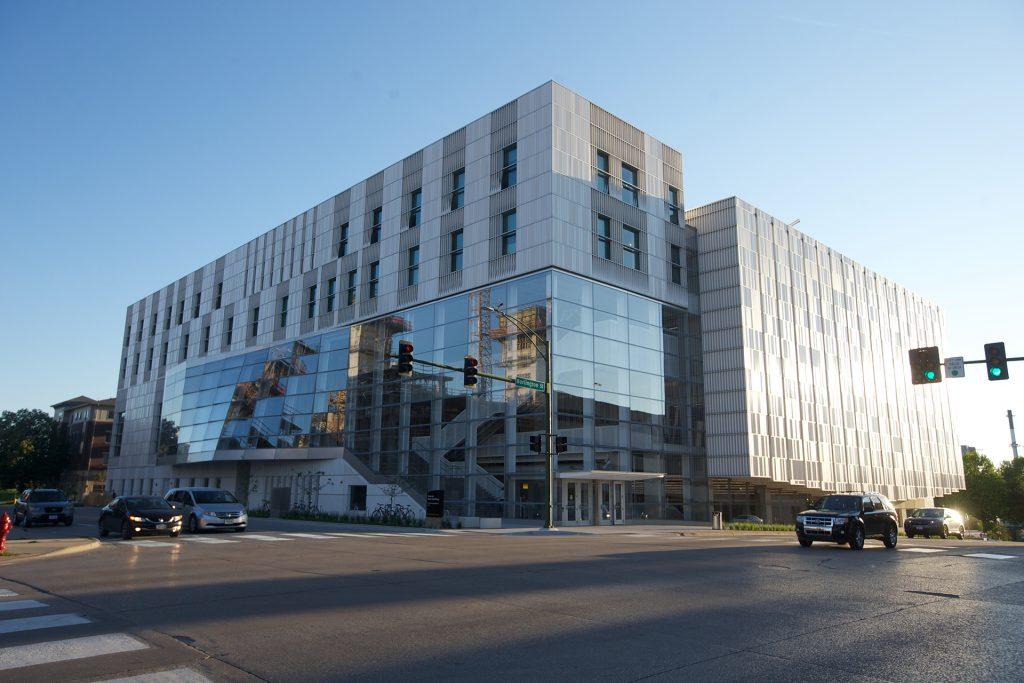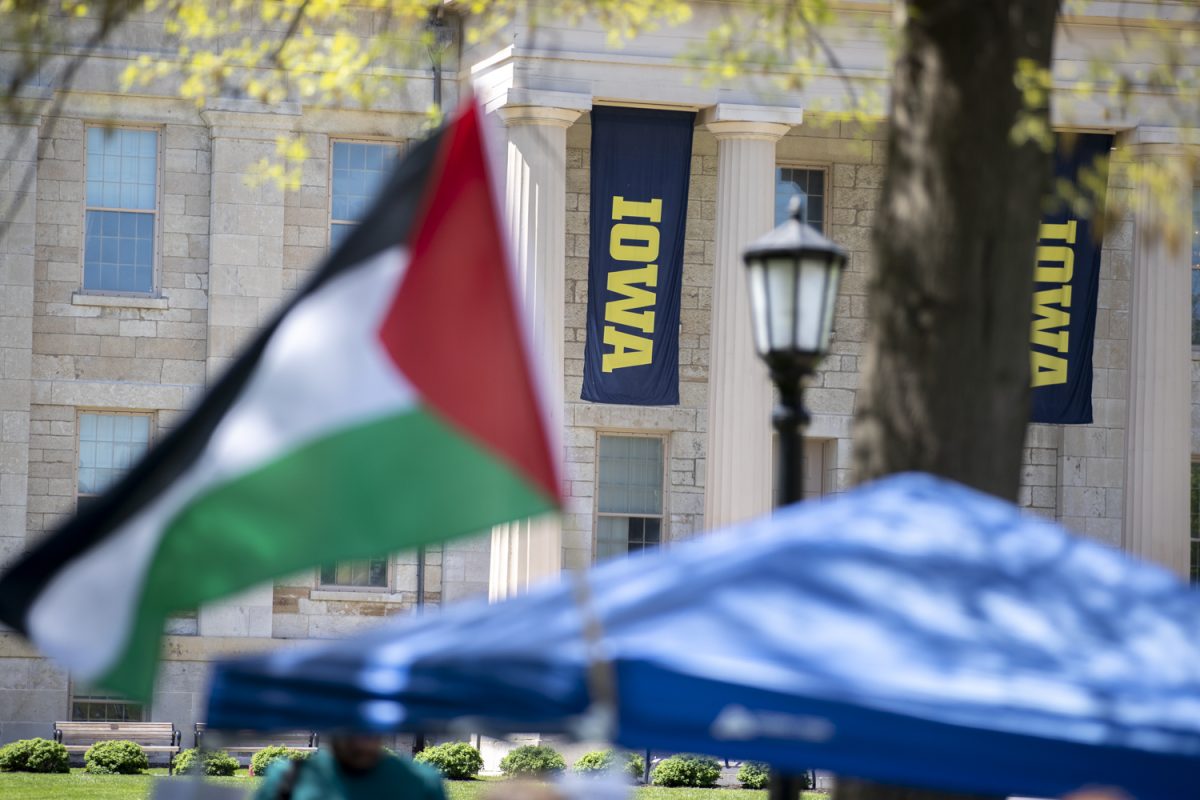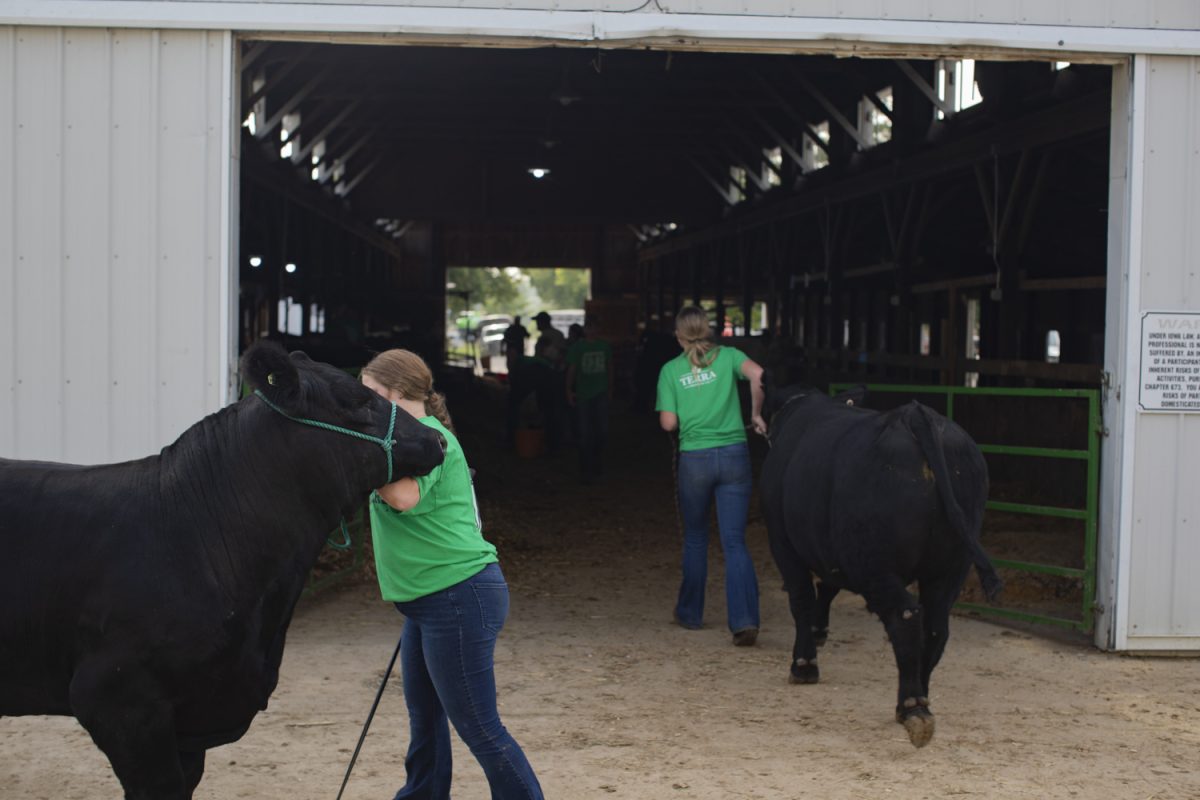A collection of once-lost film reels from the early 20th century came to life again through Bill Morrison’s 2016 film Dawson City: Frozen Time, which was screened at the Voxman Music Building Thursday evening.
The screening was accompanied by a Q&A session with the internationally acclaimed filmmaker. Morrison also delivered an artist talk that afternoon, “Consider the Source,” in which he provided the explanations behind the sources and meanings of his films.
“He is principally a filmmaker who’s famous for reassembling archived footage and reanimating how we see and understand old footage,” said Paula Amad, a UI associate professor and department chair of cinema.
Dawson City: Frozen Time chronicles the history of the once-booming gold rush town Dawson City, Canada, through compilations of archived film clips. In 1929, 533 nitrate silent films were buried in a Dawson City swimming pool until they were rediscovered during construction in 1978.
“Dawson City delivers another meditation on cinema’s past and much else, including ecological destruction,” Amad said. “It’s an amazing film working in a similar mode to all his other films.”
Preserved by the cold climate of the Yukon Territory, Morrison’s film showcased mostly 1910s and 1920s film footage from Dawson City.
RELATED: FilmScene celebrates women filmmakers during Women’s History Month
“I find it incredibly ironic that [nitrate films] were combustible, highly volatile, very fragile, and were treated like yesterday’s newspaper,” Morrison said. “There was just absolutely no reason for any of them to survive, and yet they do. They survive in sheds, and they survive in swimming pools.”
In his artist talk, Morrison discussed and presented clips from his short films such as “Outer Borough,” “Light is Calling,” “Release,” “Back to the Soil,” among others.
Morrison embraces the aged aspects of nitrate film and reclaims them in many of his films. The decayed frames flicker and morph as abstract shapes on the screen.
“Often what he’s doing when he’s reassembling dying nitrate film is you’re seeing part of the film image bubbling and being arranged in front of your eyes,” Ahmad said. “Behind it, you can see the characters in the film.”
Morris said archival film inherently picks up material residue from the years. He was originally inspired while working with an age-damaged paper print collection.
RELATED: International, environmental film festival heads up Iowa City
“That was something that immediately attracted me to archival film: this surface that you could see,” Morrison said. “This story of time that was told on each frame, and this constant reminder that the frames were individual paintings that were ticking by you in the present.”
Amad said Morrison has produced 39 films in his life, including six feature-length films. Some of his honors include a Guggenheim Fellowship and Obie Award for design.
“Bill Morrison is an Ida Beam Distinguished Visiting Professor and internationally acclaimed experimental filmmaker best known for films that draw rare and often decaying archival materials as sources for profound meditations on history and the ephemerality of both human life and mass media,” Associate Professor of cinema Christopher Harris said.
The screening and lecture were a part of the “Against Amnesia: Archives, Evidence, & Social Justice” symposium presented by the UI Obermann Center for Advanced Studies.
“He’s somebody who really reanimates and returns to early cinema and then finds new life within it,” Amad said. “[His films] are incredibly poetic and an inspirational meditation on the medium of film.”












